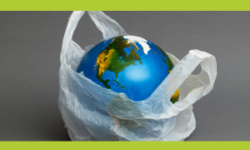During the G7, the United States, Japan, Germany, France, United Kingdom, Italy, and Canada, have pledged to reduce all additional plastic pollution to zero by 2040. This was announced at a meeting of climate, energy, and environment ministers in Sapporo, Japan, on April 16th, 2023. During the meeting, the countries recognised that addressing plastic pollution is a crucial element for realising sustainable development: “We commit to working towards a pollution-free planet for the health and well-being of our people and the environment […] We will work toward enhancing our international cooperation to end plastic pollution worldwide, recognising the need to mobilise financial support from a wide variety of sources, both public and private, domestically and internationally”.
The French Minister for Ecological Transition, Christophe Béchu, envisions this pledge as positive signal before the upcoming intergovernmental negotiations will take place in May 2023 in Paris on the future international treaty against plastic pollution.
The urgency to combat plastic pollution is driven by the fact that every minute, the equivalent of a garbage truck full of plastic waste is dumped into the oceans. According to the United Nations Environment Programme, 300 million tonnes of plastic waste are produced each year all around the world, increasingly damaging and polluting our planet.
 The G7 countries intend to combat this problem by promoting sustainable consumption and production of plastics, increasing their circularity in the economy, and managing waste in an environmentally sound manner. Recycling is the first priority for governments and the phasing out of single-use plastics. However, some experts consider “recycling” as not-effective and efficient solution. According to their perspective, to change the current and alarming trends all industrial sector should contribute to the transition efforts by offering goods and services that use only the strict minimum of plastic.
The G7 countries intend to combat this problem by promoting sustainable consumption and production of plastics, increasing their circularity in the economy, and managing waste in an environmentally sound manner. Recycling is the first priority for governments and the phasing out of single-use plastics. However, some experts consider “recycling” as not-effective and efficient solution. According to their perspective, to change the current and alarming trends all industrial sector should contribute to the transition efforts by offering goods and services that use only the strict minimum of plastic.
The scientific community and environmental groups are calling for a strongly binding treaty with targets for reducing plastic production and bans on the most problematic polymers, such as polystyrene.